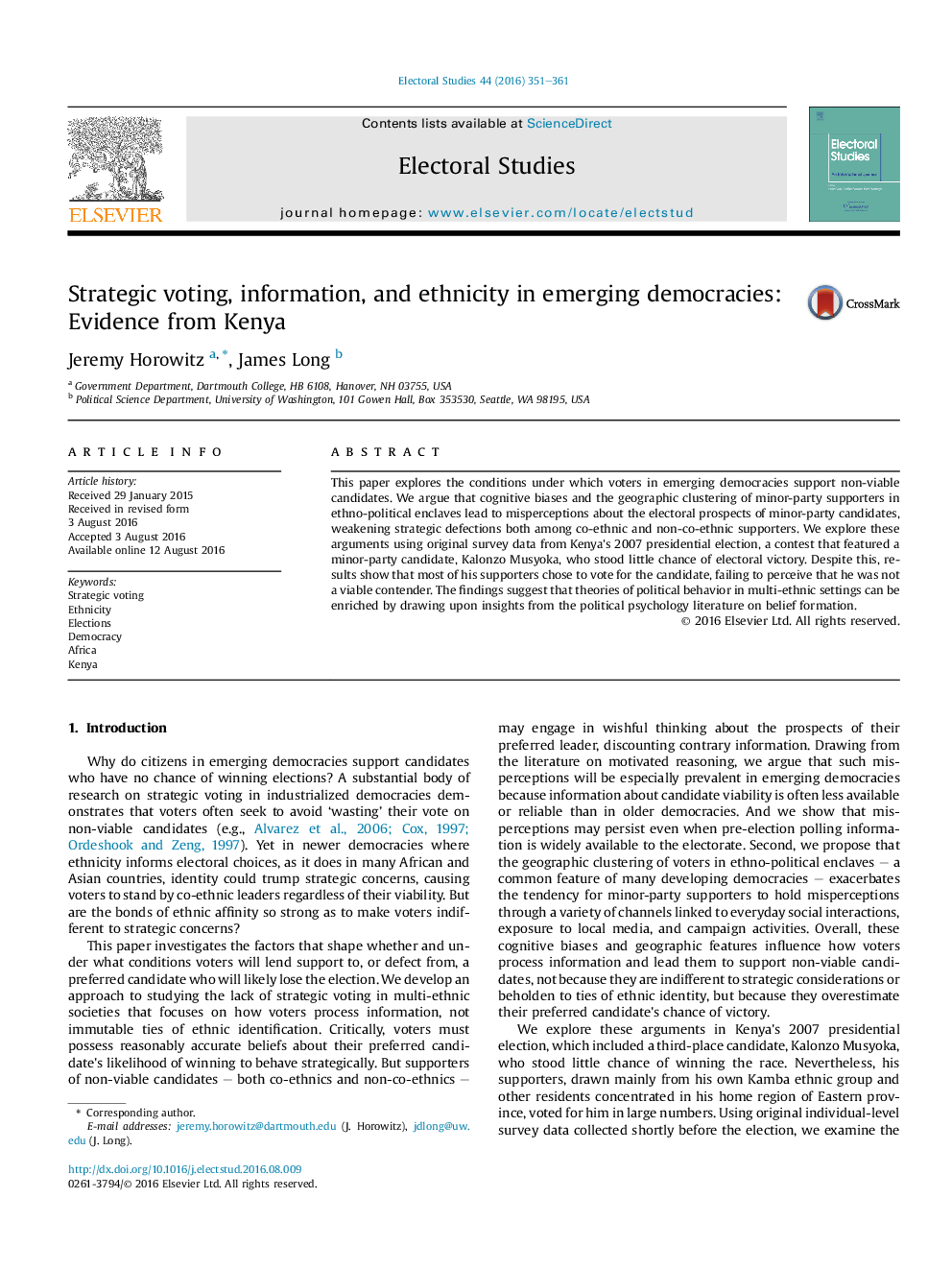| Article ID | Journal | Published Year | Pages | File Type |
|---|---|---|---|---|
| 7463408 | Electoral Studies | 2016 | 11 Pages |
Abstract
This paper explores the conditions under which voters in emerging democracies support non-viable candidates. We argue that cognitive biases and the geographic clustering of minor-party supporters in ethno-political enclaves lead to misperceptions about the electoral prospects of minor-party candidates, weakening strategic defections both among co-ethnic and non-co-ethnic supporters. We explore these arguments using original survey data from Kenya's 2007 presidential election, a contest that featured a minor-party candidate, Kalonzo Musyoka, who stood little chance of electoral victory. Despite this, results show that most of his supporters chose to vote for the candidate, failing to perceive that he was not a viable contender. The findings suggest that theories of political behavior in multi-ethnic settings can be enriched by drawing upon insights from the political psychology literature on belief formation.
Related Topics
Social Sciences and Humanities
Social Sciences
Geography, Planning and Development
Authors
Jeremy Horowitz, James Long,
